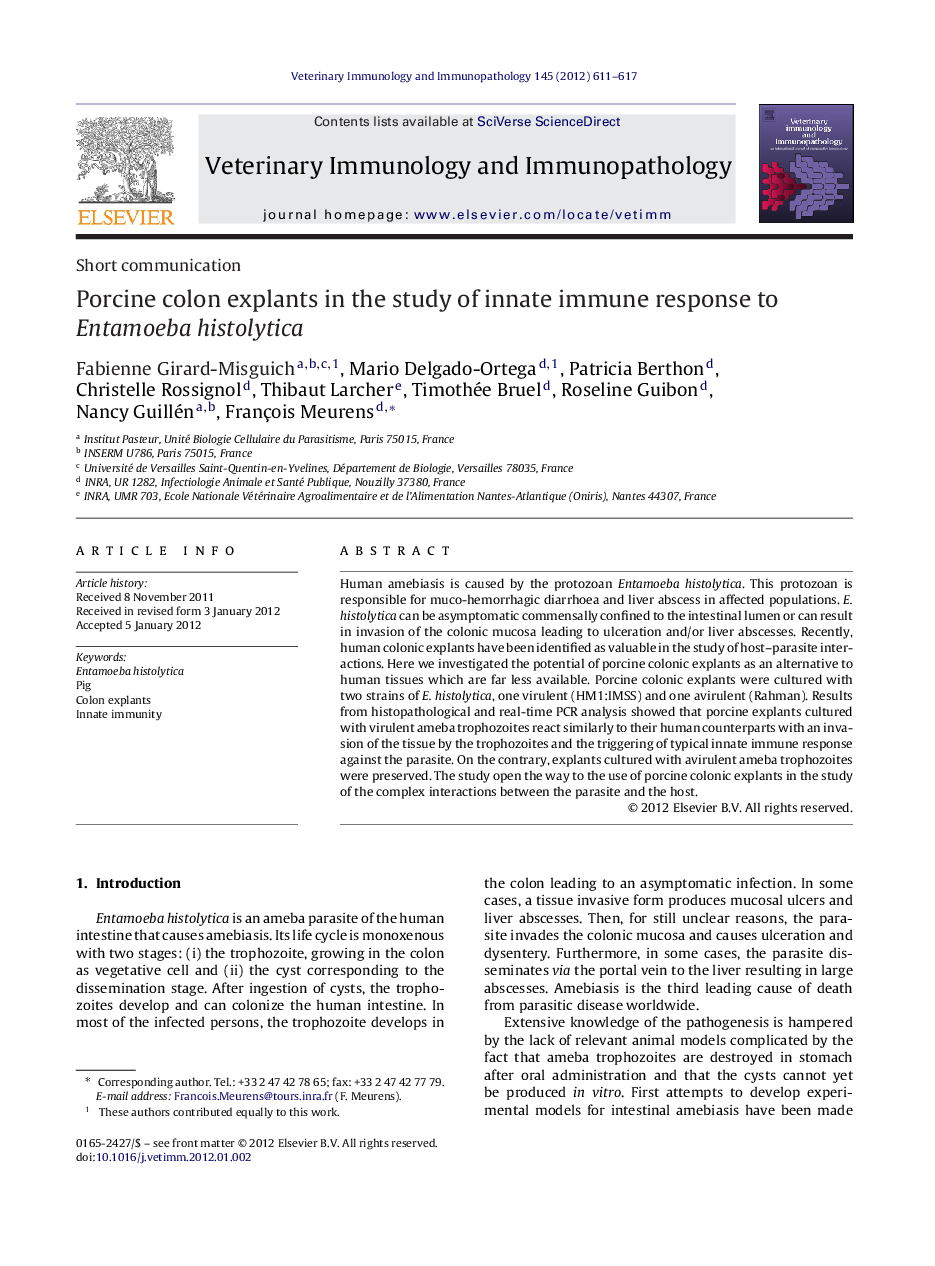| Article ID | Journal | Published Year | Pages | File Type |
|---|---|---|---|---|
| 2461991 | Veterinary Immunology and Immunopathology | 2012 | 7 Pages |
Human amebiasis is caused by the protozoan Entamoeba histolytica. This protozoan is responsible for muco-hemorrhagic diarrhoea and liver abscess in affected populations. E. histolytica can be asymptomatic commensally confined to the intestinal lumen or can result in invasion of the colonic mucosa leading to ulceration and/or liver abscesses. Recently, human colonic explants have been identified as valuable in the study of host–parasite interactions. Here we investigated the potential of porcine colonic explants as an alternative to human tissues which are far less available. Porcine colonic explants were cultured with two strains of E. histolytica, one virulent (HM1:IMSS) and one avirulent (Rahman). Results from histopathological and real-time PCR analysis showed that porcine explants cultured with virulent ameba trophozoites react similarly to their human counterparts with an invasion of the tissue by the trophozoites and the triggering of typical innate immune response against the parasite. On the contrary, explants cultured with avirulent ameba trophozoites were preserved. The study open the way to the use of porcine colonic explants in the study of the complex interactions between the parasite and the host.
